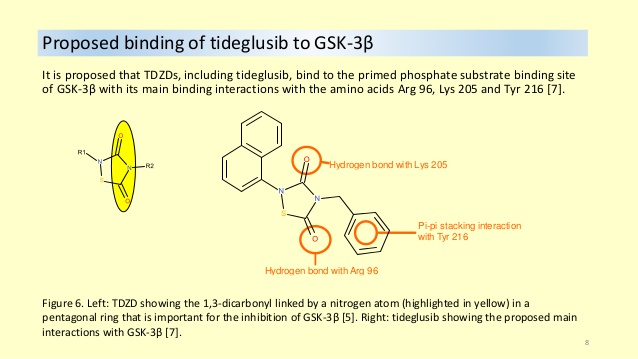There is a new compound that is being tested to see if it can help with congenital myotonic dystrophy. It is being tested for a number of applications including tooth repair and Alzheimer’s and just might help with the congenital form of myotonic dsytrophy. this is a molecule being developed by AMO pharma.
Tideglusib (NP-12, NP031112) is a potent, selective and irreversible[1] small molecule non-ATP-competitive glycogen synthase kinase 3 (GSK-3) inhibitor.

Potential applications[edit]
Tideglusib is under investigation for multiple applications:
- Alzheimer’s disease and progressive supranuclear palsy. As of 2017 it was undergoing Phase IIa[2] and IIb clinical trials.[3][4][5][6] The first trial to be published (in English) was Phase IIand demonstrated that tideglusib was well tolerated, except for some moderate, asymptomatic, fully reversible increases in liver enzymes.[4]
- Tooth repair mechanisms that promotes dentine reinforcement of a sponge structure until the sponge biodegrades, leaving a solid dentine structure. In 2016, the results of animal studies were reported in which 0.14 mm holes in mouse teeth were permanently filled.[7]
- Tideglusib is being studied in Phase II clinical trials as a treatment for congenital/juvenile-onset myotonic muscular dystrophy type I.[8]
